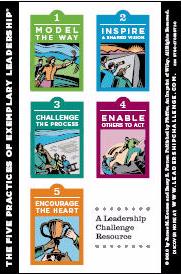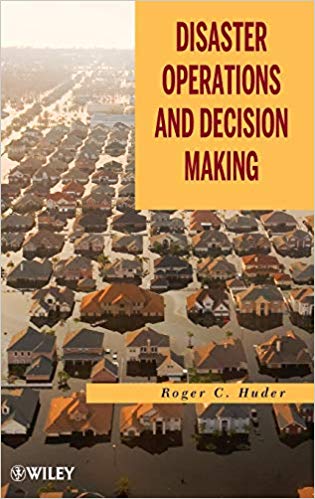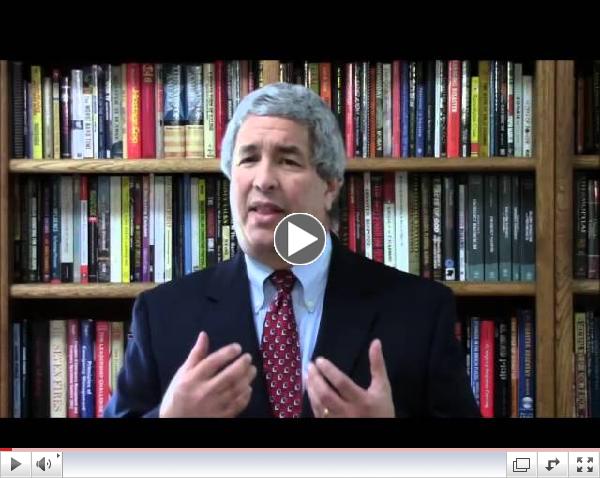|
|
| A Sign Of Friendship In The Midst Of War I THE CHRISTMAS TRUCE 1914 |
One of my favorite stories about Christmas is the unofficial truce on the Western Front in 1914. After months of heavy fighting, German and British troops ignored official sanctions to cross no man's land and exchange gifts and Christmas greetings. A certain mythology has grown up around the incident and the truce was certainly not universal but the truce remains a shining example of humanity in the midst of adversity. |
The following are excerpts from my blog
Canton on Emergency Management. Please visit my blog to see the rest of my articles.
Despite the presence of official shelters, evacuees may choose to create spontaneous shelters in other areas. Quick action is essential to head off safety concerns and to avoid public relations nightmares.
|

What Is The Leadership Challenge?
 Is leadership a learned behavior or an innate personality trait? While there are certainly naturally charismatic individuals who are considered "born leaders", leadership is a measurable set of behaviors that can be learned and taught. This is the conclusion arrived at by researchers Jim Kouzes and Barry Posner after years of rigorous research. Starting in 1982, Kouzes and Posner set out to understand what happened when leaders performed at their personal best. They conducted hundreds of interviews and reviewed hundreds of cases studies and survey questionnaires. What emerged were five fundamental practices common to extraordinary leadership achievements:
- Model the Way
- Inspire a Shared Vision
- Challenge the Process
- Enable Others to Act
- Encourage the Heart
The Leadership Challenge begins with a 360-degree assessment of thirty leadership behaviors associated with the five practices, the Leadership Practices Inventory. The results are used to identify opportunities for improving as a leader by increasing the frequency of specific behaviors. Based on over thirty years of research, the Leadership Challenge is an effective and practical tool for leadership development.
To find out more about the
Five Practices of Exemplary Leadership
, consider taking
The Leadership Challenge
. Just click on the icon below for more information:
|
|
| Click here to take The Leadership Challenge |
____________________________________
The Leadership Challenge: How to Make Extraordinary Things Happen in Organizations
by James M. Kouzes & Barry Posner
_______________________________
The Leadership Challenge is a registered trademark of John Wiley &
Sons, Inc.
|
Free Resource Guide for Solo Consultants
For solo consultants, true wealth is discretionary time. Don't waste yours on simple tasks that can be handled by technology. This free resource guide reveals the four essential online tools I use to manage my solo consulting practice and save hours of valuable time. And the best part is - they're free!
 Interested in exploring the world of consulting? My membership site might be just the resource you need to get started. You'll have access to blogs designed to answer very specific questions, a resource library of templates and articles, the opportunity to network with peers, and discounts on coaching and training programs. Download the free guide or click on the logo above to go straight to the site.
Interested in exploring the world of consulting? My membership site might be just the resource you need to get started. You'll have access to blogs designed to answer very specific questions, a resource library of templates and articles, the opportunity to network with peers, and discounts on coaching and training programs. Download the free guide or click on the logo above to go straight to the site.
|
|

M
y Blogs
Follow Me
|
|

Welcome to the December edition of Emergency Management Solutions.
My first disaster as a FEMA employee was responding to a hurricane on Guam over Christmas in 1990. It was my first real separation from my family. It would not be the last time I spent a holiday on a disaster assignment and I lost count of the significant family events I missed.
Ever since then, I can not observe the holidays without being sensitive to the many colleagues who who give up their holidays to serve those in need. I am also acutely aware of the impact on our families and how important their support is. These sacrifices are the greatest gifts you can give.
To all my friends and colleagues, may your new year be filled with joy and prosperity!
Regards,
|
|
_
________________________________________________
See You In January!
_________________________________________________
|
|
3 Tips on Public Speaking from the Experts
by Erik Bernstein
According to Psychology Today, people are more afraid of public speaking than death. I see you nodding your heads out there, and to be honest when I first started practicing the skill I felt the same. While it's perfectly fine to sweat having to speak in public or to the press, if you're the one tasked with representing your organization in a tough situation you can't let it show.
Try these 3 tips on public speaking from Bernstein Crisis Management media training experts:
- Have a plan. Even the best speakers are going to have a bad time if they go into an interview and wing it. Know what you want your audience to come away remembering and how you'll get them there. Remember they may not believe you on reputation alone and that you'll need actual facts, figures, or outside opinions to support your points.
- Avoid repeating negatives. A classic trap those facing tough questions fall into is repeating the negative. If someone asks, "Why did your company choose to lay off 800 employees?", the last thing you want to answer with is, "We chose to lay off 800 employees because...". Consider how to rephrase answers to predictable questions before the interview so you're ready.
- Remember compassion. This is the single element missing in most speakers during crisis. Unfortunately, tough times are when you need it most. Make sure people know you understand why they're upset, scared, or angry. Until you can convince them you "get it" most audiences simply won't listen, or even worse will actively rally against anything you say.
[Jonathan Bernstein is president of
Bernstein Crisis Management, Inc., an international crisis management consultancy, author of
Manager's Guide to Crisis Management and
Keeping the Wolves at Bay - Media Training
. Erik Bernstein is vice president for the firm, and also editor of its newsletter,
Crisis Manager]
Copyright Bernstein Crisis Management, Inc.
Used with permission
Professional Development Opportunities
T
he 21st Annual Emergency Management Higher Education Symposium
June 3-6, 2019
FEMA Emergency Management Institute
Emmitsburg, MD
Broomfield, CO
The theme of the 2019 Workshop will be Convergence. Explore how we come together to study hazards and disasters, apply the knowledge that's generated, help one another, build community capacity, implement meaningful policy, and envision a future that leads to reduced disaster risk and improved social well-being.
Nov. 15-20, 2019
Savannah, Georgia
The goal of the IAEM Annual Conference is to improve knowledge, competency level and collaborative skills. IAEM accomplishes this by attracting relevant high-profile
speakers to address current topics and practical solutions.
|
|
|
Being There For Others
The poet Rod McKuen once remarked that the business of day to day living makes it too easy to neglect those we love. People we don't particularly care for have a way of eating up our time and energy so much that we have little left to give those who really matter to us.
These can be particularly true for emergency managers. The best of us are passionate about what we do and we dedicate ourselves to doing the best we can for those we serve. This translates to long and unpredictable days and even when we are off duty we are sensitive to potential problems. We sometimes forget that our friends and families need our attention, too.
One of the hardest things for an emergency manager to learn is how to let go and be present for those we are with. We need downtime and those we care for need our attention. Taking the time we need ultimately makes us better at our job. It also keeps us human.
|

Di
saster Operations and Decision Making
By
Roger Huder
Huder offers an interesting perspective on disaster operations that is at odds with the standard doctrine familiar to emergency managers. In lieu of the "four phases" that hamper rather than help most plans, he suggest four phases more closely aligned with operations: impact, stabilization, sustainment and recovery.
His chapter on decision making is also of interest in that in discusses the work of Gary Klein and the Boyd Cycle of continuous decision making and distills these into a three-question briefing format that would be useful in planning meetings.
The rest of the book is not as interesting. Huder is heavily influenced by the Emergency Support Function system and devotes the bulk of his book to the use of the ESF system in the emergency operations center. His discussion on ICS is less than two pages.
Much of the book is devoted to samples, checklists, training aids, and charts rather than to content. While the book could be useful to people new to emergency management, it offers very little new material and is too basic for experienced emergency managers.

|
|

Emergency Management: Concepts and Strategies for Effective Programs
by Lucien G. Canton

|
|
Need a speaker for your next conference? I offer keynotes, seminars and workshops.
 |
|
Three Reasons Why I'm the Right Speaker for Your Conference
|
|
|
Speaking Engagements
Now Taking Bookings for 2019
|
|
| |
|